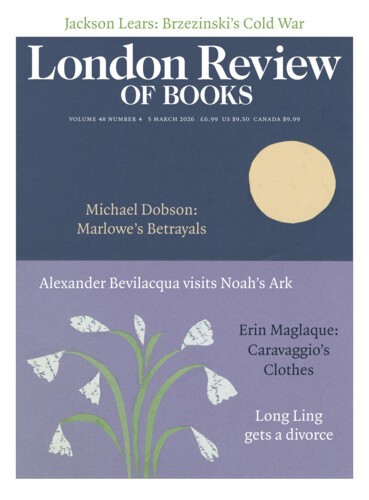Brzezinski’s Cold War
Jackson Lears
Zbigniew Brzezinski was a difficult man. As a child, he stood out from his three brothers in being ‘emotionally detached and hard to please’, according to his sympathetic biographer, Edward Luce. He slept on hard floors to feel the discomfort experienced by the less fortunate. In his high school yearbook photo, ‘the eye is drawn to his hawklike nose and piercing...

